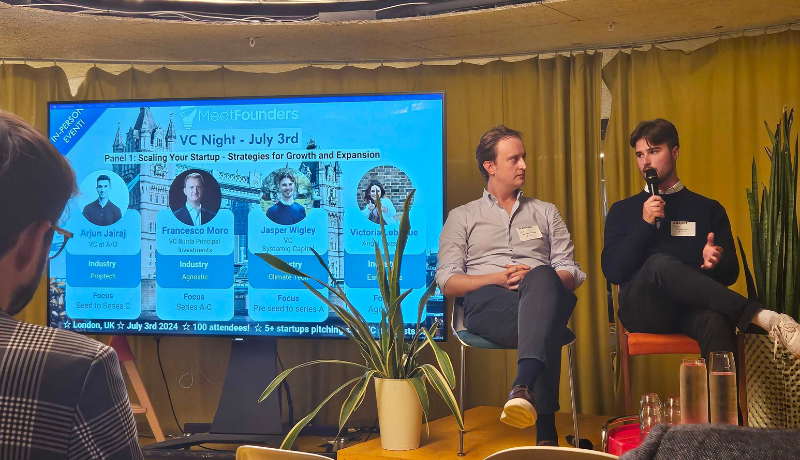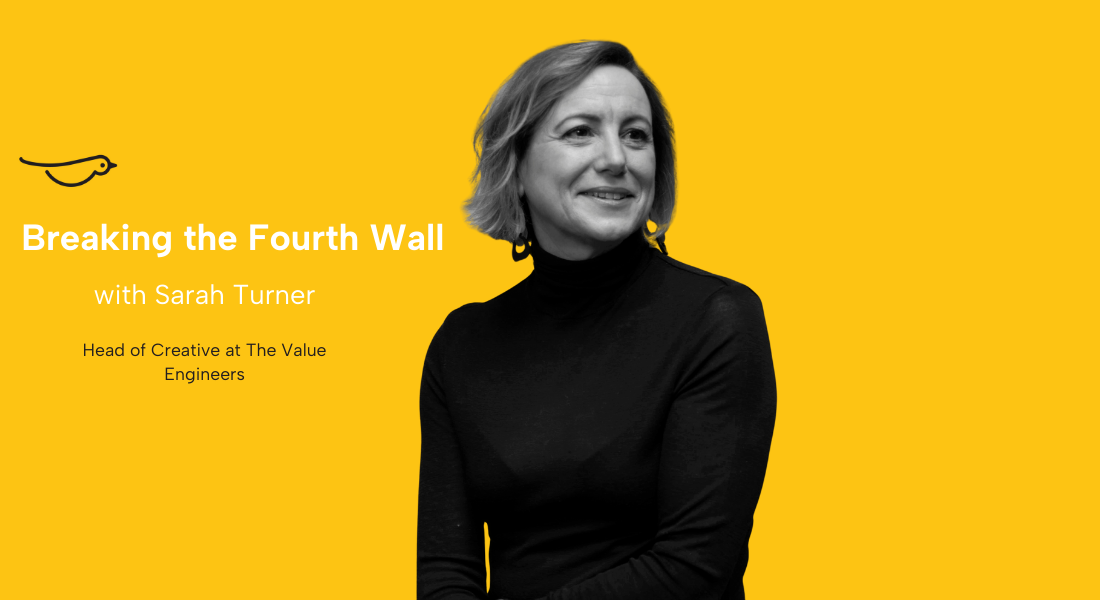Scaling your business - tips from the VCs
By Danny Ward
E arlier this month, MeetFounders held its Venture Capital Night at the green and beautiful Second Home at Spitalfields.
Two sets of panellists talked about scaling and exit strategies, and a highly promising selection of startup businesses presented their plans for growth. The event was the first in a series of venture capital events which Fourth Day is sponsoring.
The discussions threw up some super-valuable information for entrepreneurs, so we’d like to impart some of that wisdom here. Insights were shared by experts including Arjun Jairaj, Franceso Moro, Jasper Wigley, Gideon Daitz , Luisa-Alix Orsini, Mariam Makhmutova and Lukasz Garbowski.
Firstly, the panellists talked about what “scaling” actually means. Answer – the ability of a company to grow significantly from its original proposition without losing performance. To put some rough figures on it, they agreed that this usually means increasing in size from £5m-10m revenues to £100m plus.
Next they shared some of the most important things that VCs look for when they are considering helping a company climb up to the next level:
1. Customer validation – do you have it? Investors consider annual renewal rates to be a good indicator of a startup’s readiness to step up. If a company is too young for these to be meaningful – say, less than five years old – then VCs will carry out due diligence by speaking to customers directly, including the ones who have stopped using your service. In very few companies, when a technology is genuinely the first of its kind, investors may be inclined to take more of a risk. A good example of this is hydrogen-powered aviation pioneer, Zeroavia, in which panellist Systemiq was an early investor.
2. A robust team. Founders have to be aware that rapid growth will mean that they can no longer manage their workforce in an unstructured way. A team of 60+ people needs career development structures and feedback mechanisms for staff. The investors’ advice included hiring a “people person” early. While culture fit is a top priority for your early hires, as you grow you’ll be bringing in a wider range of personalities and skills and you need the processes in place to manage them. Some VCs may ask to sit in on exit interviews as these can reveal a lot of information that employees might usually be reluctant to discuss.
3. Pragmatic founders. Know if it’s time to let someone else take the reins. Founders are often great at getting things off the ground but may not be the right people for the next step. Investors will be looking closely at the senior team, so if one individual refuses to put what’s best for the company above their own ego, deals can fall through.

Founders are often great at getting things off the ground but may not be the right people for the next step
4. Early engagement. No investor wants to be called upon at the last minute when the money is running out. Entrepreneurs should be building relationships with VCs early – communicating their progress and demonstrating that they are heading in the right direction. When it comes to the next stage of funding, the path will run smoother.
5. Know your numbers. Investors want to know that you are on top of every aspect of your business. It’s not just a question of having your quarterly revenue figures at hand – you need to be aware of what’s happening in your market and where you fit in. Raising funds to scale in 2024 is a slower process than it was back in 2021 when interest rates were low and VCs were keen to find places for their money. Today you may need to accept that it could take 4-6 months, and that market conditions can change within that time.
6. Exit strategies. The consensus amongst VCs on the panel is to expect the unexpected – in other words; the plans you make will almost certainly not happen! While an initial exit strategy alignment with your investors is crucial, adapting expectations to the landscape you face down the road is even more important. Don’t hang on for an IPO as your only route out. These are hugely dependent on market conditions, so be realistic with your figures and remember that small cap M&As can be very effective.
This piece was originally posted via the MeetFounders LinkedIn page here. The next MeetFounders VC Night takes place on Wednesday, July 31st, with tickets still available.
Share this:





